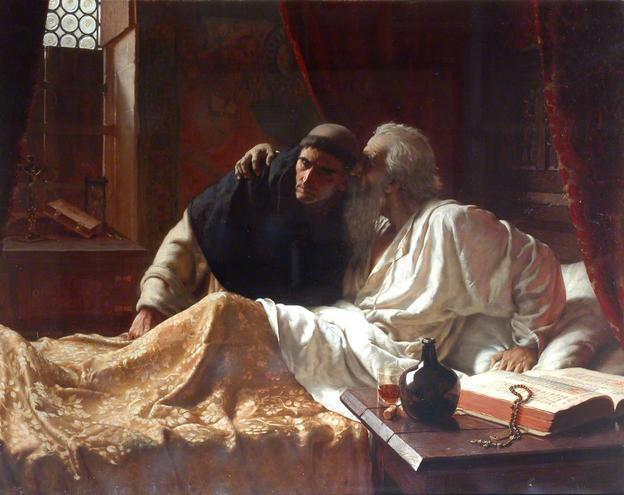The media’s coverage of the financial meltdown is often cited as irresponsible and biased. David Wessel weighs in on the balance between editorial and news during a time of chaos. This series was made possible by the Charles G. Koch Charitable Foundation.
Question: MARK THOMA, ECONOMIST’S VIEW: How do the editorial and news divisions of the Wall Street Journal influence coverage?
David Wessel: Most newspapers have a wall between the news side and the editorial side. What makes the Wall Street Journal different is that our wall is very high and it has barbed wire on the top. I long ago came to terms with the fact that the edit page has its views and sometimes its own facts, and they’re different from the facts that I see. I don’t worry about it. I do my best to explain to our sources in Washington that we do our thing and they do theirs and the fact that we’ve been successful in covering Presidents with views as different as Ronald Reagan and Bill Clinton suggest to me that here in Washington, people get it. It’s a bigger problem overseas because the editorial views of newspapers tend to affect their news sides more; papers are more partisan, so sometimes that is hard to explain to foreigners. One thing I will say is that a lot has changed at the Wall Street Journal since Rupert Murdock bought the company, but that thing hasn’t. I don’t care what the edit page says, and I don’t think they care what I say and there’s very little interchange of ideas between us. We see each other in the men’s room or on the basketball court, sometimes we sit down with the same policy maker to have a conversation, but I just don’t worry about it and I think the readers are lucky. They get two newspapers for the price of one.
The Wall Street Journal has many constituencies. There are a set of people who buy the Wall Street Journal because they like the editorial page and they like to read what the editorial page has to say about the issues of the day. There’s a constituency of people who are in business and who want to know what’s happening to their competition, what’s happening to their economy, the dry cleaner in Peoria who wants a sense of how’s business. But I think more, and more, there are people who read the Wall Street Journal because they want a good well-rounded newspaper and other newspapers have been forced to shrink more than we have so that we always had strong political coverage. We covered the civil rights crisis in the ‘60’s, with unusual vigor. And in the years since then, the paper has become broader, not narrower.
The first section of the paper now is largely general news, not business and finance. So, I think like any successful newspaper, we have to accept that we have many constituencies, some of them reading us only online or on their Blackberry’s, and our only way to survive as a viable institution is to do enough for each of them so they buy the paper and then they get the rest of the stuff that they don’t want.
Question: What are some of the really important economic blogs?
David Wessel: I look at Calculated Risk. I look at Greg Mankiw's blog. I look at Brad DeLong's blog. I look at Paul Krugman's blog for the stuff that's not in the New York Times when he puts online. Simon Johnson and his friend do one called Baseline Scenario that's good. I've learned a lot to rely on Twitter in a way because what Twitter does is someone notices something interesting on a blog that I don't normally read but it's on the subject that I like to know something about. So I don't have an RSS feed so I don't like look at 50 things a day but those are the ones that I do and then we have our own, Realtime Economics, and I spend substantial time making sure that we have some interesting stuff up there.
I think the danger here is very real though, that blogs and cable TV become a way for people to get their prejudices confirmed. If you believe that John Kerry really won the presidential election, you can find some blog that says oh yeah that's what happened and it had to do with faulty voting machines. And if you believe that Barack Obama was really born in Kenya you can find a blog to say that. What I worry about is if people go to the Internet and get their prejudices confirmed that the role of people like reporters at the Wall Street Journal who are trying to check out the rumor before they print it or post it gets diminished and in the worst case the profits go to people at the extremes, to MSNBC on one side and Fox on the other and there are fewer profits for people in the middle who are trying to do what used to be called fair and balance journalism.
I don't think it so much restrains a better part of valor, it's that if you put something on your website or in your newspaper you ought to have reason to believe it's true. And it's very hard for us when people complain, "You didn't report this thing that I read on XYZ Website." We can say, "Actually we did look into it. We found out it wasn't true, so we didn't put it on our site." In the old days, that would meant that no one heard about it except the people who are on the inside. Today, it's like everybody knows it. Everybody knows things that are not true because they can read it on the Internet.
I hope that what will happen is that there will be so much information overload that people will once again realize that some sites are more credible than others and they will turn to those to be mediators between themselves and the whole flood of news. I mean, most of us do not need the news media to tell us about the things that we do every day; I don't need to read my local newspaper to discover that a tree fell in front of my house, but what I rely on the media to do is to tell me the things that I need to know that I didn't see myself. People tend to be very critical when there's a story written in the newspaper about a meeting they were at or a subject they know well and they say, "I was at that meeting..." or "I know that subject and this reporter doesn't get it." That then challenges the credibility of everything else they read in that publication.
Well I'm hoping that works in reverse. That when they read for the fifteenth time on some website something about Barack Obama that isn't true, that they'll begin to think, "Well this is entertaining but it's not true and I'd rather go to some mainstream media site or some credible new stream media site to give me the truth." But we're not at that point yet, so it's a little bit frightening.
Question: To what degree did economics bloggers influence coverage of the crisis?
David Wessel: I think there’s a long term trend here that people who work for traditional media, like the Wall Street Journal, are both blogging themselves and reading blogs to get new and different ideas, or net and different takes, or smart analysis on what’s going on. I think actually, that became more important during the crisis than to the run up. But it does provide an important monitor and check on the mainstream press willing to go with the flow.
I think one of the lessons I learned is that if things are going fine and 9 out of 10 experts say that everything’s going to be okay, and one says that we’re cruising for a bruising that our coverage should not be 90% positive and 10% negative. We really have to listen harder to that 10%. And sometimes the way you find those 10%, the way you get a critical read on their views, is to read what they’re blogging and what other bloggers say on them. So, I think it played a role and I think it well play a much bigger role in the future.
Recorded on November 20, 2009





